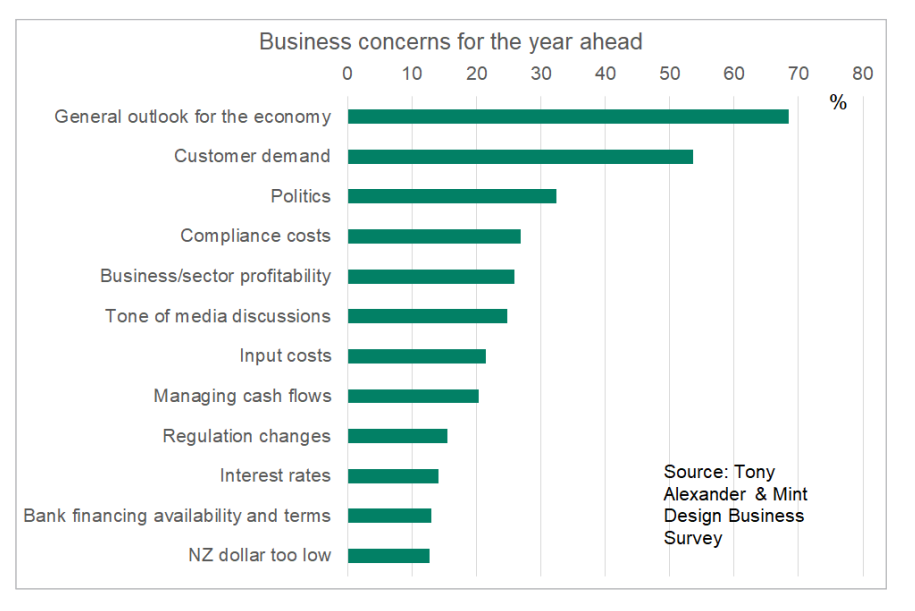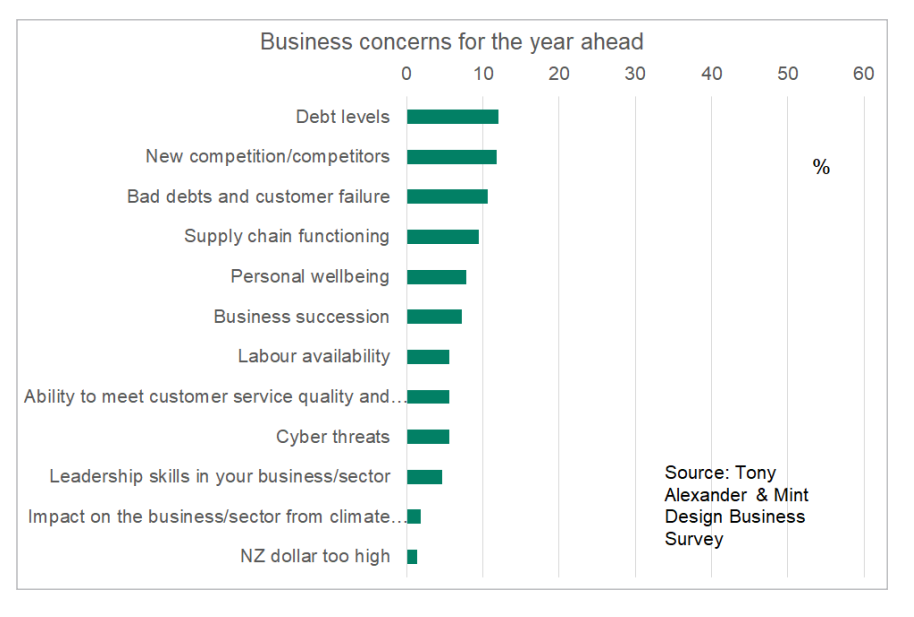Tony Alexander's latest insights reveal rising pessimism among Kiwi businesses

Although NZIER’s March-quarter QSBO reported the strongest lift in business confidence since 2016, independent economist Tony Alexander’s April findings suggest sentiment may have softened again in recent weeks, with firms citing renewed concerns around politics, global trade, and economic uncertainty.
In the latest MintHC Business Insights update, Alexander (pictured) reported a notable decline in confidence across New Zealand businesses, driven by growing unease over the domestic political landscape, international trade tensions, and signs of economic stagnation.
The findings are drawn from 432 business professionals across a wide range of sectors, surveyed via Alexander’s “Tony’s View” newsletter.
The April snapshot pointed to a deteriorating outlook for the economy.
“Businesses have become more concerned about the economy’s growth prospects, the political situation in NZ, and supply chain functioning amidst the tariff war offshore,” Alexander said.
This growing uncertainty is prompting firms to adopt more conservative decision-making.
Investment and hiring on hold amid caution
As conditions become less predictable, companies are pulling back on spending.
Many are shelving plans for equipment upgrades, reducing inventory, and cutting back on hiring. Worryingly, this month’s survey showed a drop in employment indicators, reversing earlier signs of recovery.
Despite subdued expectations for growth, cost pressures remain persistent.
“Despite the worsening outlook for 2025, the pressure on margins from rising costs is sufficiently great that plans for raising selling prices have increased,” Alexander said.
Top business concerns: Economy, politics, and demand
When asked about their biggest worries for the year ahead, businesses pointed to economic uncertainty, softening demand, and political instability as the top three concerns.
While few view the New Zealand dollar as overvalued, a growing number now believe it's too low, which may further squeeze import-reliant sectors.
A particularly sharp shift in sentiment was seen around domestic politics, which has surged as a source of business anxiety in recent months.


Spending focuses shift toward retention and strategy
The second half of the survey explored how businesses plan to allocate limited resources in the coming year.
The top three areas where spending is expected to grow include retaining existing customers, refining strategic direction, and investing in social media policies.
On the flip side, companies are scaling back spending on recruitment, climate-related initiatives, and inventory. Plans for staff training and new product development remain stagnant, reflecting a reluctance to invest amid so much uncertainty.
Hiring easier, but skilled labour still scarce
Despite the slowing economy, many businesses are finding it easier to hire.
A net 11% reported improved access to quality staff, particularly in general roles. However, shortages persist in specialised fields such as accounting and mechanical trades.
Revenue and morale expectations decline
Expectations for revenue growth have dimmed, with only 37% of businesses now forecasting an increase over the next 12 months—down from 47% the previous month.
This marks the weakest revenue outlook since before the Reserve Bank signalled upcoming rate cuts in July last year.
Business sentiment around staff morale and mental wellbeing has also turned negative. Just 1% net of respondents now expect morale to improve in the coming year, down sharply from 8% last month. This shift reflects a broader decline in business optimism despite easing monetary conditions.



